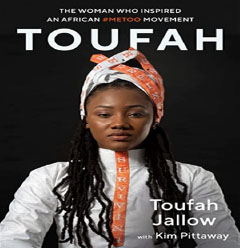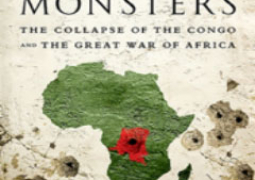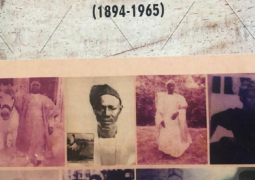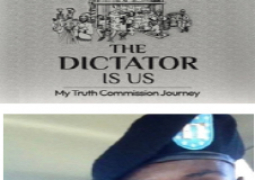
I was interested to spot this book in a Net Galley email, with its subtitle “The Woman who Inspired an African #MeToo Movement”. And it was an inspiring and fascinating read indeed. It was also my second book set at least partly in The Gambia (like “Roots“)!
This insistence on using ‘allegedly’ when it comes to rape can’t be explained away as simply protecting the rights of those not convicted, because the word isn’t just attached to the person named as perpetrator, it is attached to the crime itself … I notice the same tendency in report about other crimes in Canada and abroad: when men say they are beaten or assaulted, the word ‘allegedly’ is rarely inserted. When someone says they’ve been robbed, ‘allegedly’ almost never appears. But when a woman says she was raped, her assertion is often framed as ‘she claimed she was raped’ or ‘she was allegedly raped’. Whether in The Gambia or Canada or the United States or the United Kingdom, when women say they were raped, the men they accuse are given the benefit of the doubt. The women? They are simply doubted.
Toufah grew up in a traditional home in The Gambia, first of all in a multi-family household made up of her father, his three wives and their children, then in a compound her mum has scrimped and saved and worked at two jobs to afford to build, brick by brick. Not only is her mum independent and a feminist in the way a woman can be in traditional, Muslim Africa, but her mum’s mum made sure she could get to university before being married off, and tried to find her a husband who didn’t already have a wife. Her aunt wears trousers and has moved to the UK.
The women in my family, and in other families too, subverted men’s power where they could; made choices in their own interests where they could; and where they could created a world in which their daughters had a little bit more power, more choice. Social and religious circumstances pushed them down. Their strength and will pushed them forward – and perhaps in these ways they were more similar to the mothers and gradd mothers of Western feminists than is often acknowledged.
So she’s learned from example to stand up for herself and she knows her mum will stand up for her, too. That’s why, when something awful happens, she has no choice but to flee her home country and become an international refugee.
Toufah is encouraged to enter a competition, a pageant (more than a beauty queen competition, she must produce a performance, answer questions and put forward a proposal for change in the country), the first prize of which, she is led to believe, is a scholarship to a university abroad. Winners are typically lavished by the president, Yahya Jammeh, with gifts for themselves and their families – laptops, furniture, jobs … But when Toufah first turns down a job then more from Jammeh, he has his fixer bring her to him during an Eid festival, and rapes her.
Toufah knows she’s being followed by the authorities. Resourceful and clever, she manages to escape and, through a network of Gambian citizens who have left the country for various reasons, she is able to throw herself on the mercy of the police in neighbouring Senegal. And they don’t know what to do with her, because they get political prisoners, journalists, people who have tried to overthrow the administration, but no one has come to them who has been raped. In fact the word “rape” doesn’t even exist as a word in the languages of The Gambia, and so she has to either skirt around the issue or be horribly direct.
Once in Canada, Toufah lives in accommodation for refugees where all the people around her try to teach her to how to live as a Canadian – and she does the same as new people come along. Once more, people who think refugees seek asylum and refuge in other countries in order to access wealth and benefits should read her accounts of grinding poverty and basic, shared accommodation, of trying to heal while working at several jobs, of not being able to access her own Gambian community because of the misinformation being shared about her.
And now here she is, back giving evidence at the Gambian Truth, Reconciliation and Reparations Commission after Jammeh has been deposed, in her own name, her face showing, detailing what he did. She’s lived in Canada in the meantime, making a life for herself, making friends, working hard in multiple jobs and studying for qualifications that will help her support other women going through the same situation. A hashtag, #IAmToufah, allows other women to tell their stories under the veil of anonymity, and she has set up a foundation to support women’s safety and mental health. She has an all-round, holistic view of what needs doing, and is starting to achieve that, getting funded to provide audiovisual materials on rape and sexual harassment for the country as the book is written.
I know from my own experience that simply focusing on one aspect – telling young women they can be what they want to be, say no if they want to say no – was actually dangerous if those shiny ideals weren’t backed up with practical supports, effective laws and societal structures to hold abusers accountable.
The end section of the book shares powerful African women who Toufah sees as role models and offers to her students as such. There are definitely some people to look into there as well as the ones I was more familiar with. What an example to us all Toufah is, and her story is deftly crafted by Kim Pittaway while leaving it feeling like her own speech and thoughts.
Available At Timbooktoo Tel:4494345




